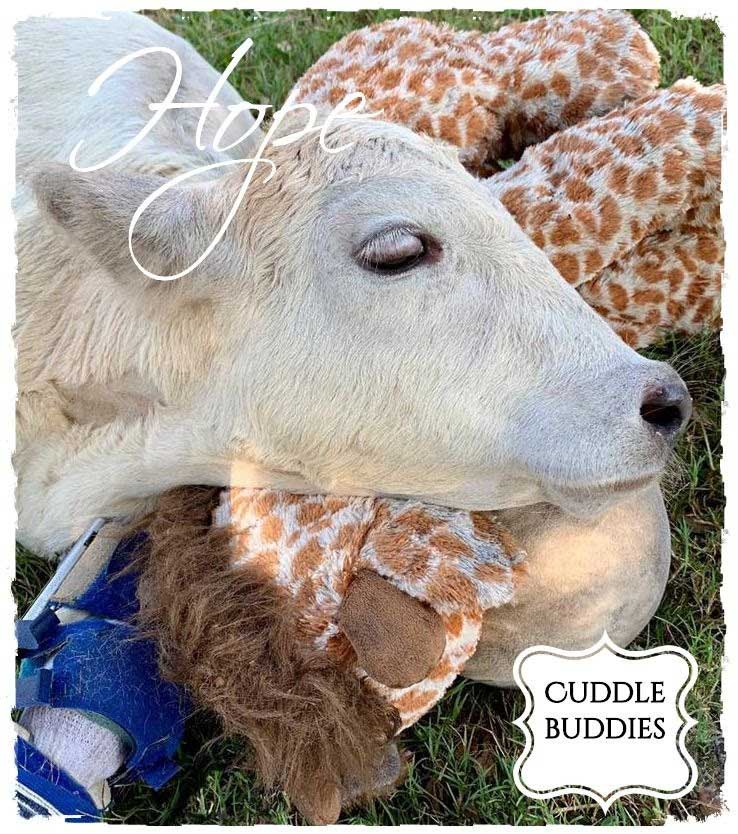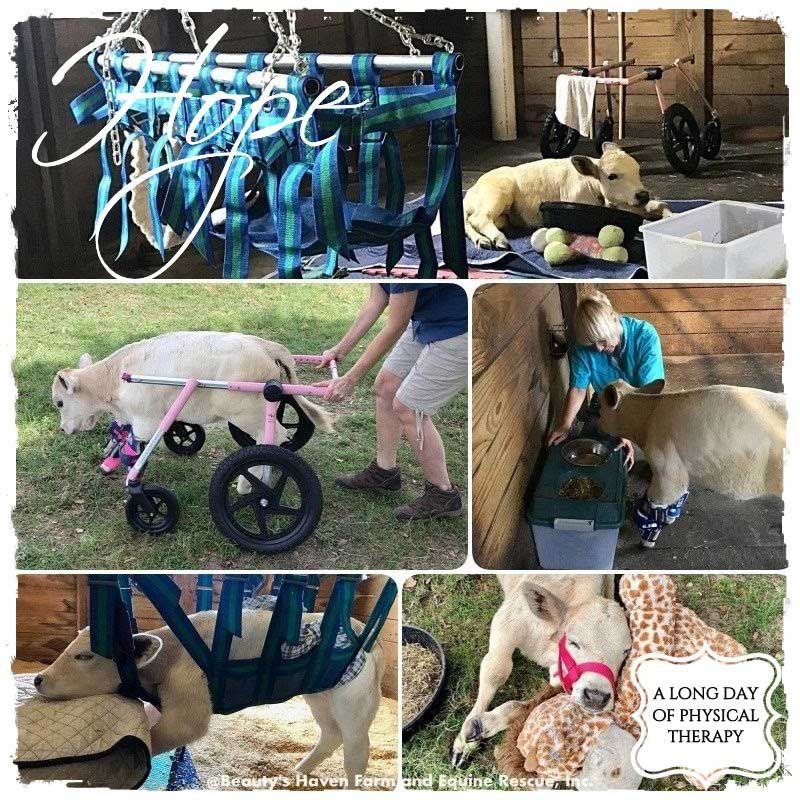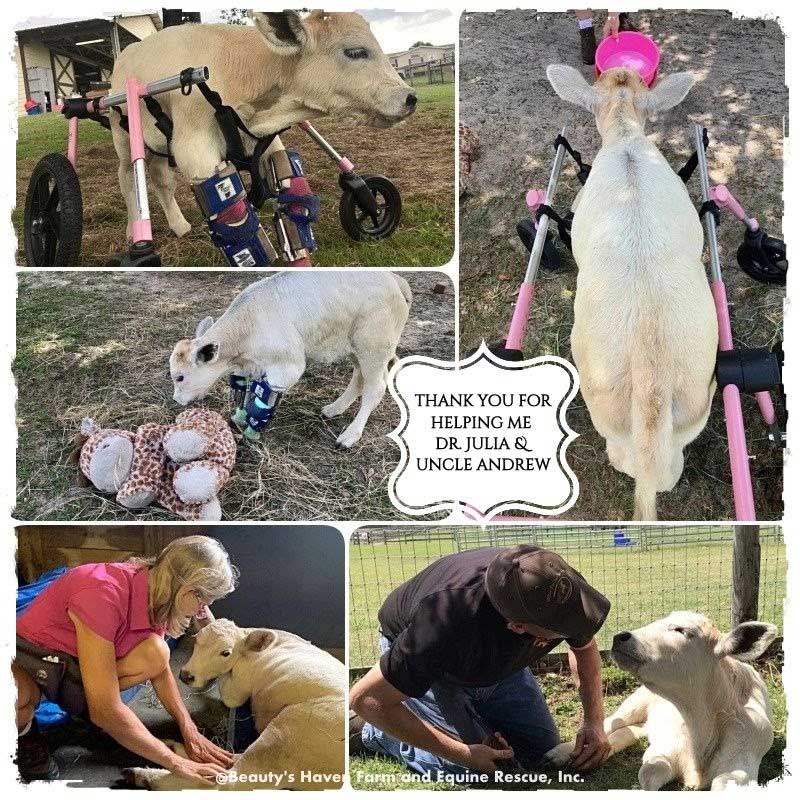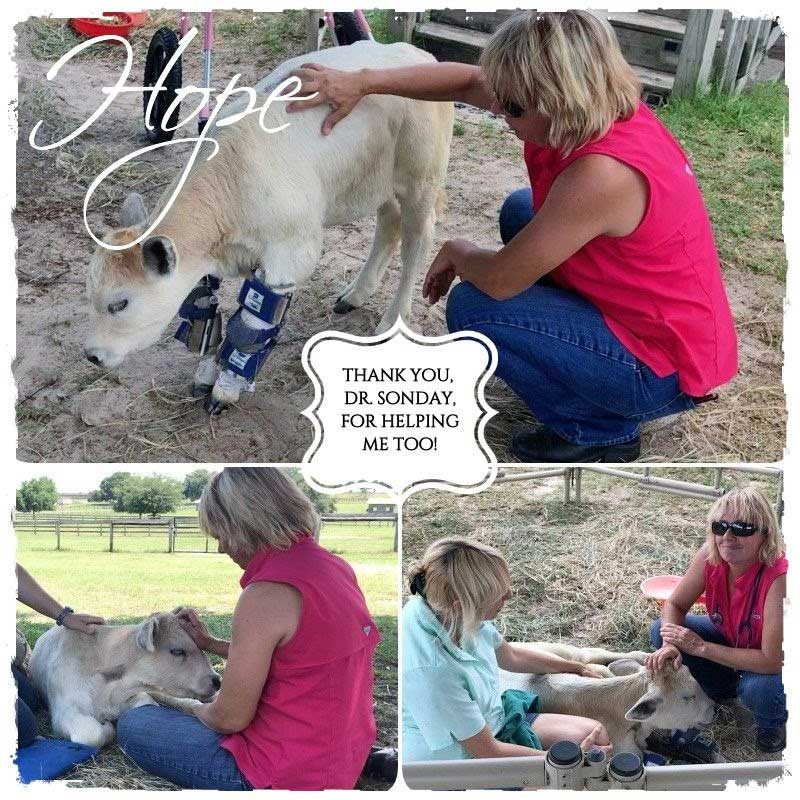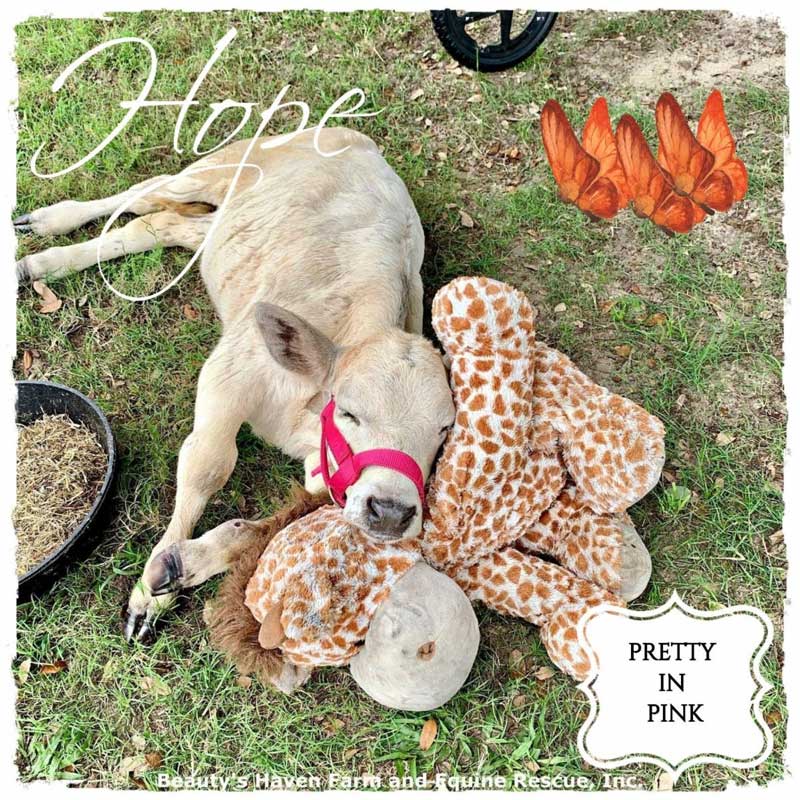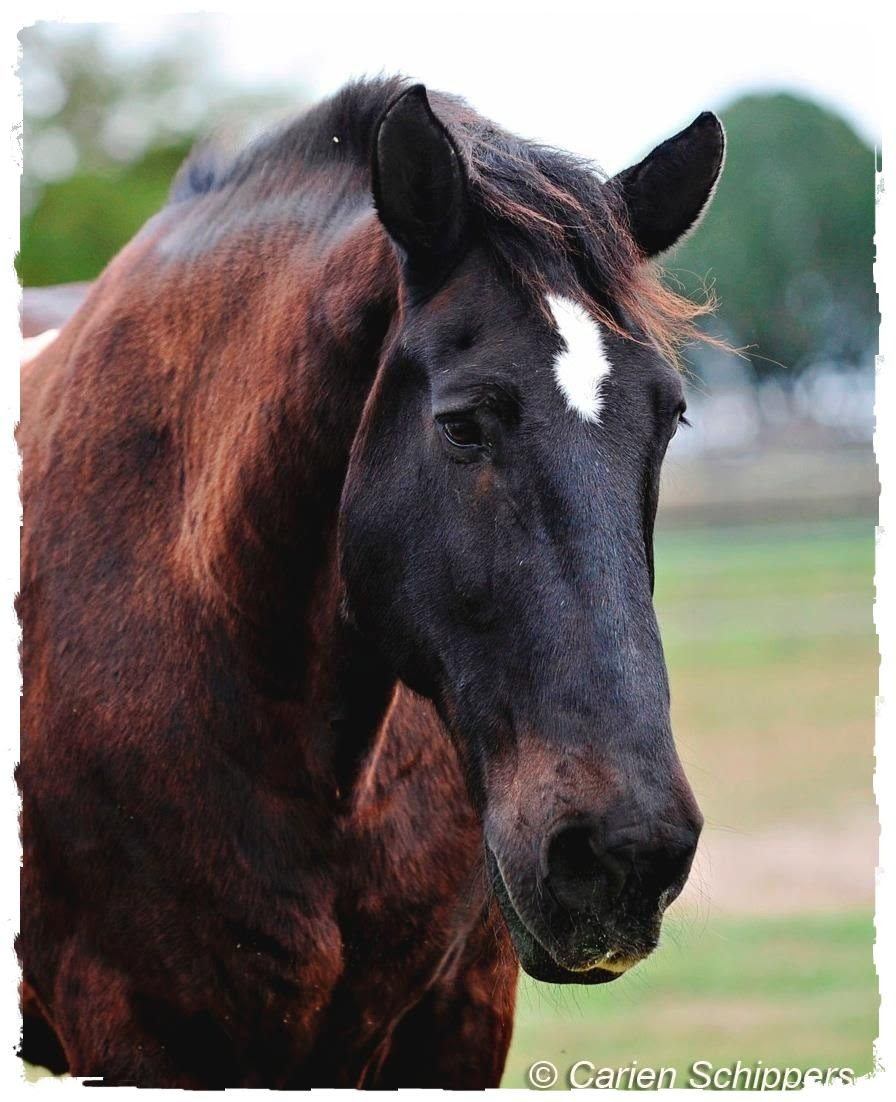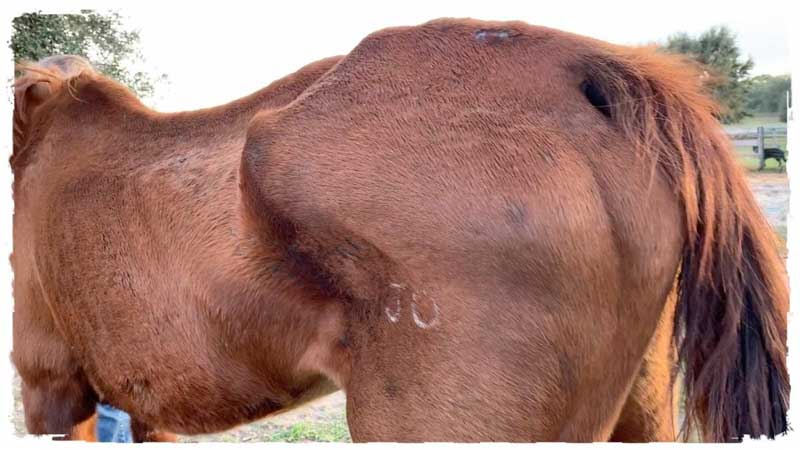
I apologize for taking so long to post this update. The daily chores/needs we tackle here each day are many and there is little extra time. Those of you who have been with us for a long time, know I used to post often throughout the days/nights. Now, I try to post at least a couple of times a week when I am able to make time before calling it a day. Hopefully, soon, I’ll be able to post more routinely again.
And now, for Jo’s long awaited update
Jo’s kidneys and liver are stressed and she’s fighting infection. She has a heart murmur, severe muscle atrophy, and is about 300 pounds underweight. She has a poor coat and patches of skin without hair. Her coat, thankfully, is actually looking slightly better already. Her appetite is good and she’s drinking and getting the supplements that she needs. She’s also being treated for ulcers. As I mentioned in my update yesterday, Jo’s feet needed attention, too, but they were taken care of the day after we brought her to the rescue.
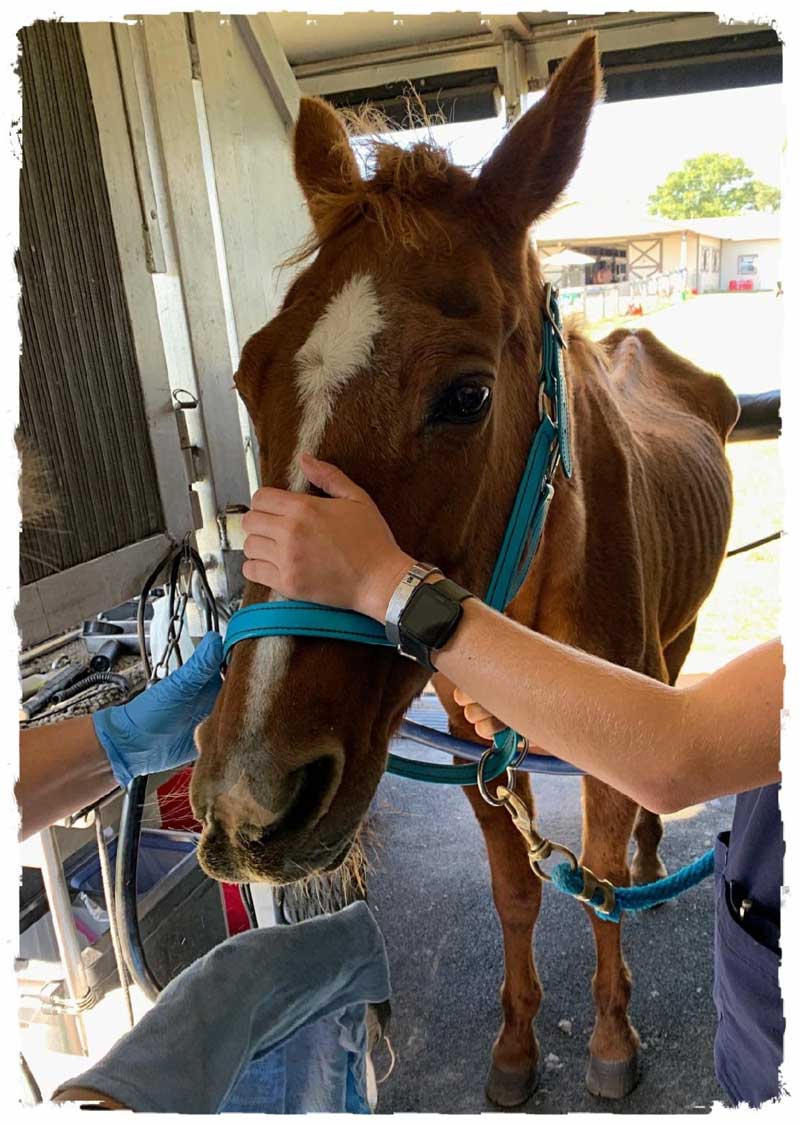
Like most horses, Jo walked right into the stall in Dr. Bess’ dental trailer. She was an absolute angel the entire time.
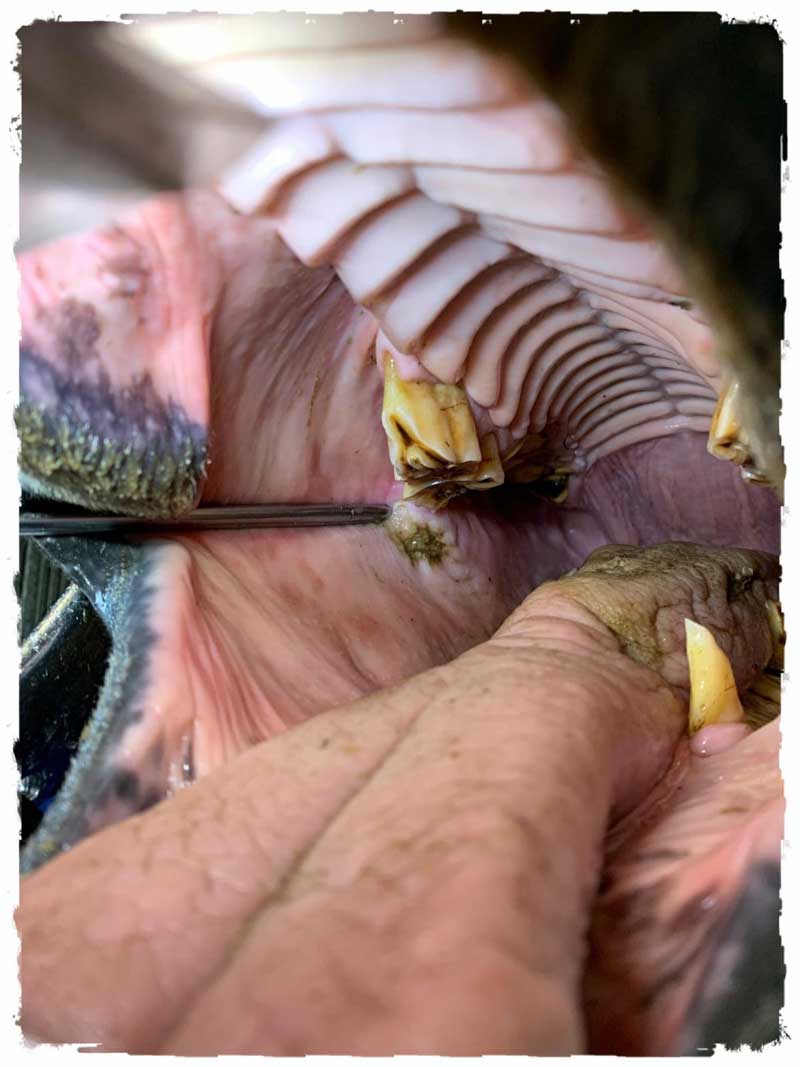
Most of Jo’s issues came about due to the condition of her teeth. Dr. Bess Darrow (Tune Ups Veterinary Equine Dentistry) found ulcers in Jo’s cheeks, gums, tongue, and soft palate due to sharp points. One sharp point put the palatine artery at significant risk of being cut which could have caused Jo to bleed out.
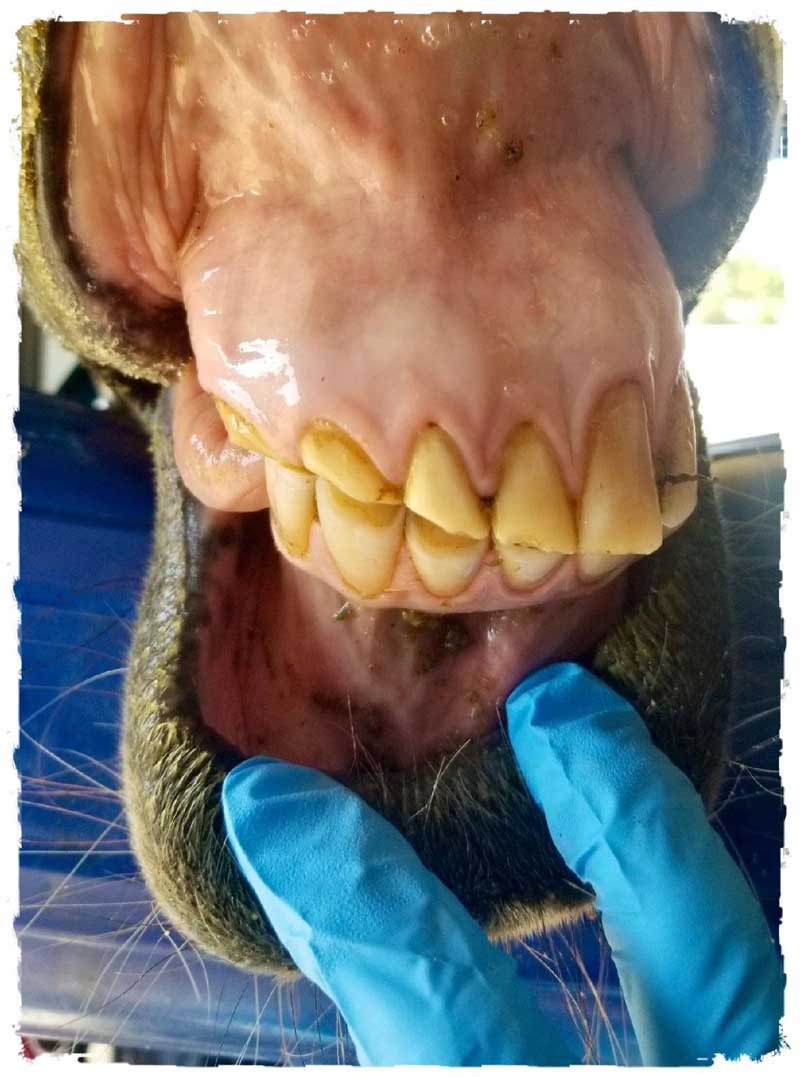
There were large ramps and her front teeth are on a slant due to misalignment which physically obstructed the motion she needed to properly chew. Because Jo couldn’t chew, it decreased the ability of her digestive system to extract much needed nutrients from any food she did manage to get down. It also put her at risk for choke and colic.
Most horse owners know this, but for those who don’t, when a horse chews, it is a grinding motion that, over time, wears down the tooth surface. Sharp hooks and points form. Teeth wear unevenly which causes the mouth to close improperly which can lead to chronic colic, weight loss, quidding, bad behavior, and other issues. Quidding is when food gets rolled into balls which fall out of the horses mouth and drop to the ground. Sometimes, rather than chew with a painful mouth, a horse will try to swallow food before chewing is complete which can cause choke, colic, and weight loss. Jo was quidding. Sometimes, a horse will pack food on the side of its mouth (when they are unable to chew on that side) which can cause gum disease and tooth loss.
When a horse is younger, uneven wear can be corrected. Left unattended, the issue progresses and becomes severe as in Jo’s case. Horses’ teeth erupt and wear over their lifetime. As a horse ages, the eruption rate slows and teeth get shorter. With an older horse, there might not be any tooth left below the gum to keep erupting and teeth may start to fall out. When a horse loses a tooth, the tooth above or below it, doesn’t have anything to grind against. The teeth on each side of the empty space start moving toward each other and feed can get packed there which can cause issues that would need veterinary attention.
As a horse ages, the digestive tract becomes less efficient at absorbing and processing nutrients. Reduction in the ability to mechanically break down food (through grinding of the teeth) lowers digestibility. It’s important to ensure a horse’s diet is tailored to suit their particular needs. Senior horses like Jo, and Little E, need a complete senior feed that is easy to chew and is highly digestible. This feed can be soaked and made into a soupy mash which helps prevent choke. The increased water intake also helps reduce digestive issues. These horses benefit from smaller portioned meals that are offered more frequently throughout the day.
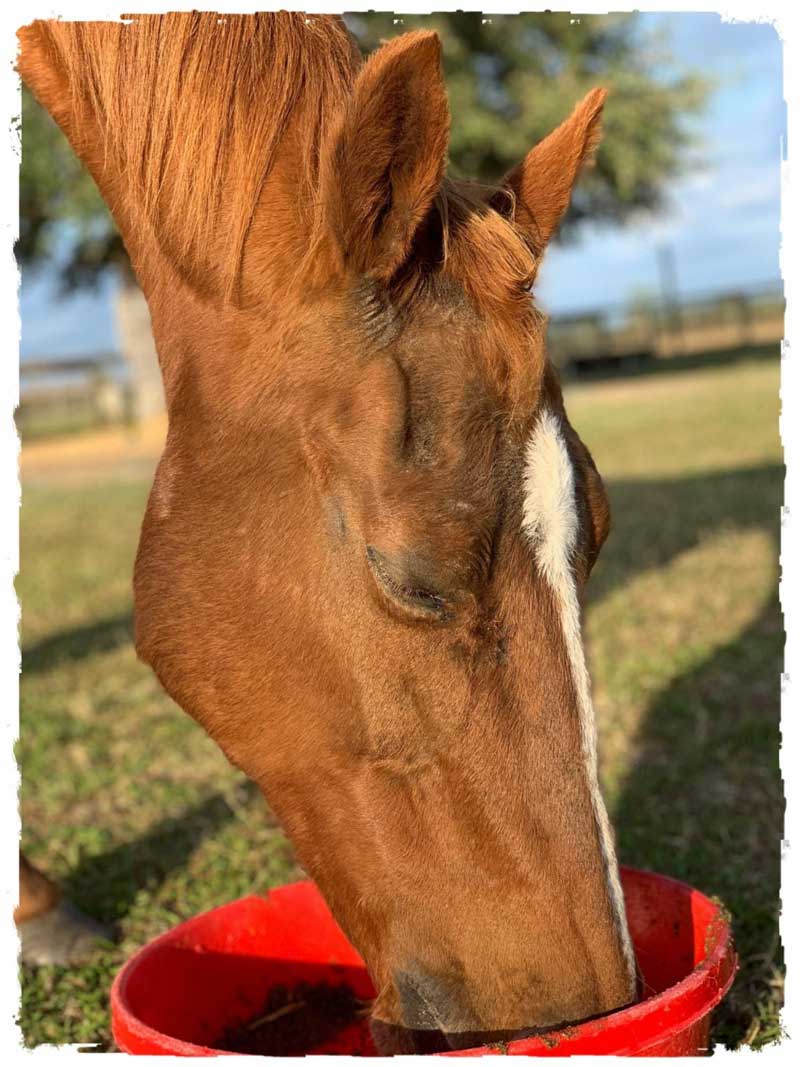
The day after Dr. Bess did Jo’s teeth, it felt good to know Jo could finally use her mouth without the pain and discomfort that she had been feeling for quite some time. And Jo actually looked brighter and happier!
Providing proper dental care for the entire lifetime of a horse is very important to its well-being. Routine dental care can help a horse live a longer and healthy life by preventing issues and unnecessary pain and suffering. Every horse owner has an obligation to provide this to their horse.
Jo’s previous owner said they were feeding her two meals a day, and I do believe them. After Jo arrived, she passed manure and there was grain in it. We were told that Jo’s teeth were floated about 1 1/2 years ago by a farrier. Whoa – red flag! This is a good example of why it’s important to have an equine dentist, or veterinarian skilled in equine dentistry, like Dr. Bess, to properly diagnose, correct, and treat dental problems as well as administer sedation (if needed).
We’re thankful that Jo’s previous owner finally reached out for help before it was too late, allowing us the opportunity to make a significant difference in Jo’s life. She wouldn’t have lasted much longer. Recovery may take awhile – many things happen to a body when it has been deprived of proper nutrition. But Jo has a bright attitude and we have the means (thanks to our supporters) to provide what she needs to help her through this time.
We thank all of you for caring!
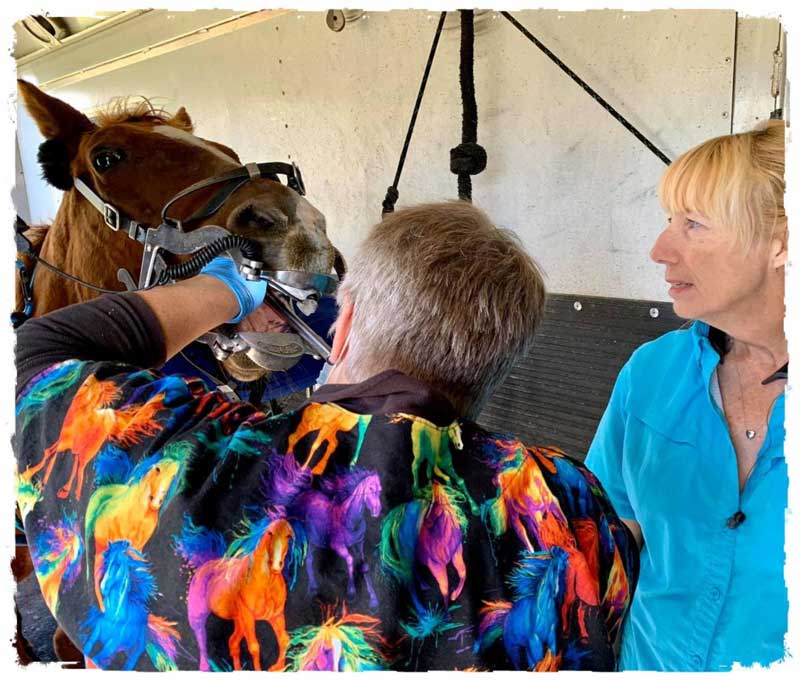
Dr. Darrow is a veterinarian and is International Association of Equine Dentistry certified. She specializes in equine dentistry. Her dental trailer is awesome and most horses walk right into the padded stall. She uses a full mouth speculum and bright light, a drencher, power and manual tools, a soft chin rest and/or a head suspension system, mirrors, other instruments, and sedation (when needed). She provides a dental record and chart of the horse’s mouth which describes the work she did and also shows diagrams of the teeth. It’s obvious to us that she understands the whole horse and cares about her patients. She has been treating our horses for years!
Dr. Darrow’s website is Tune Ups Veterinary Equine Dentistry and she can also be found on Facebook. We truly appreciate everything she does for the horses, not just here, but everywhere! She spearheaded Houses4Horses, a non-profit organization that began with efforts to aid horses following Hurricane Michael in 2018 in Florida’s panhandle. Houses4Horses is also helping to provide vet care, hay and feed for horses and livestock remaining on Grand Bahama Island in the aftermath of Hurricane Dorian.

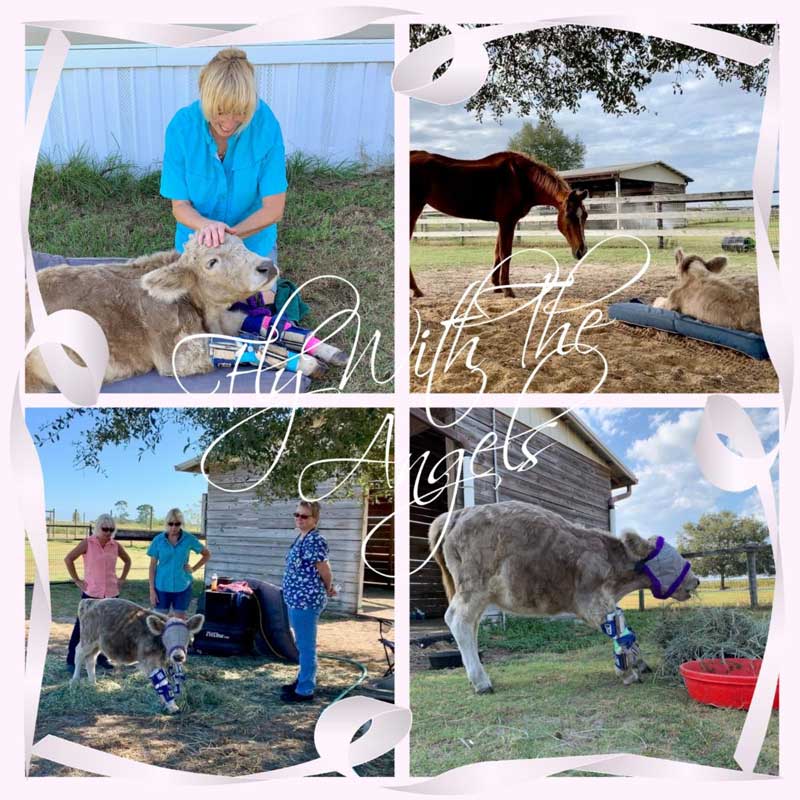
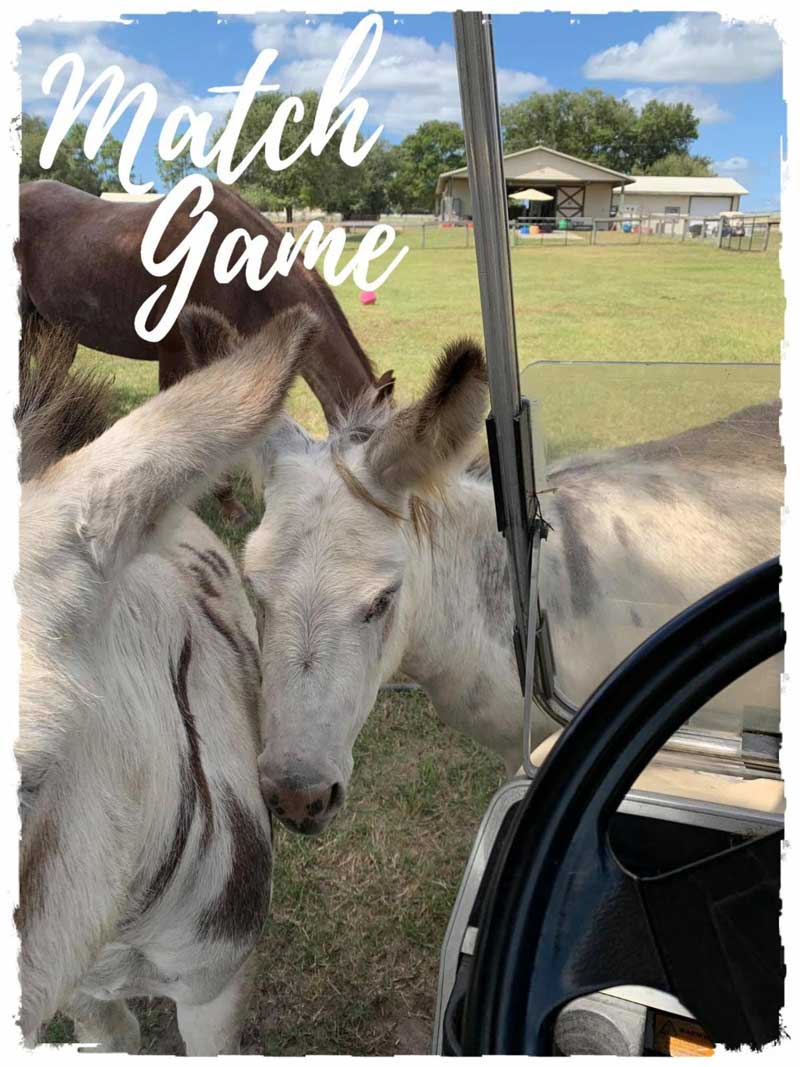






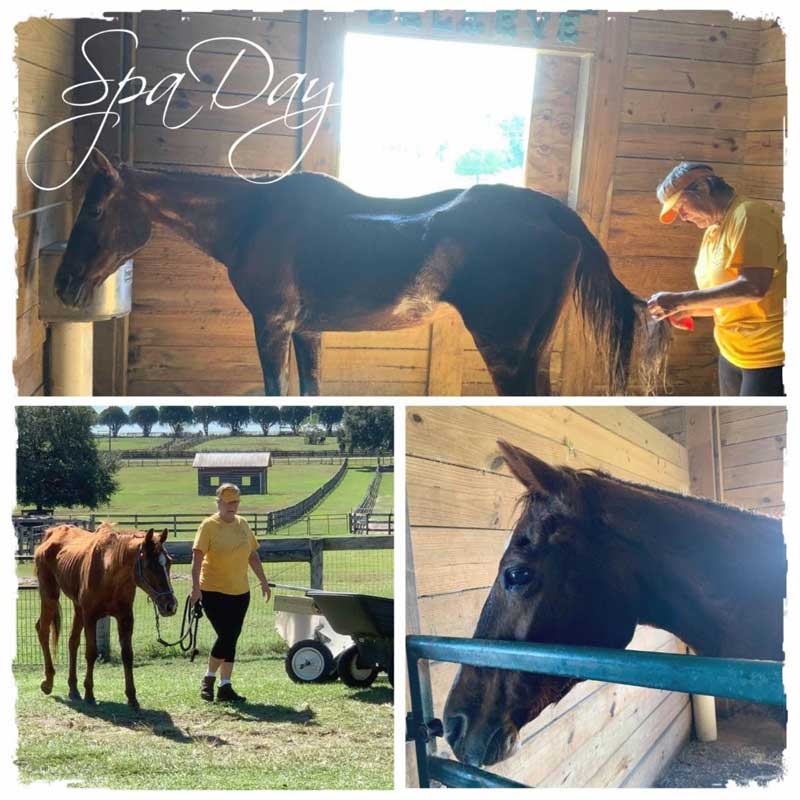
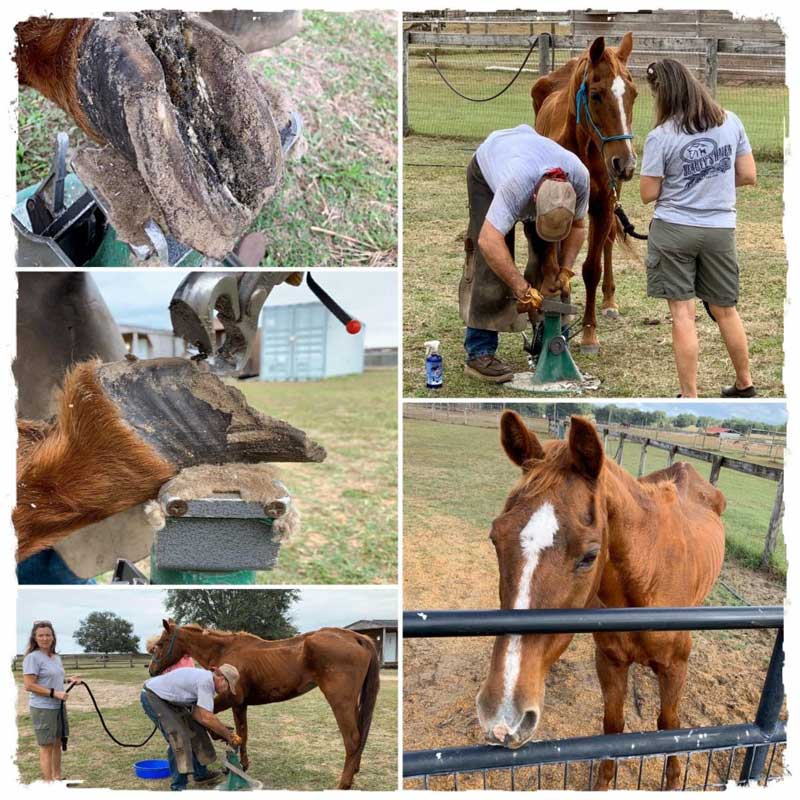
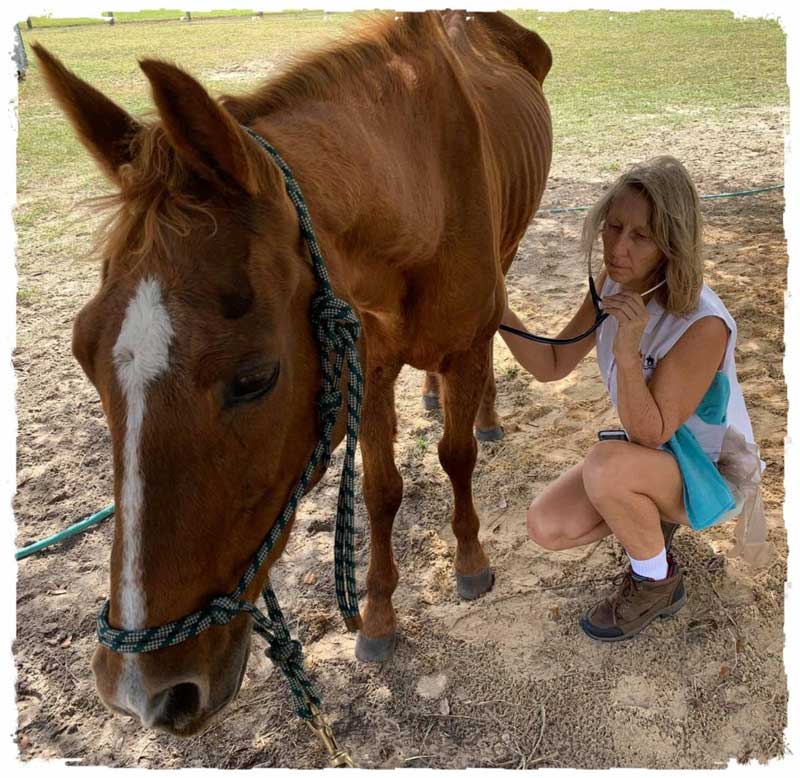
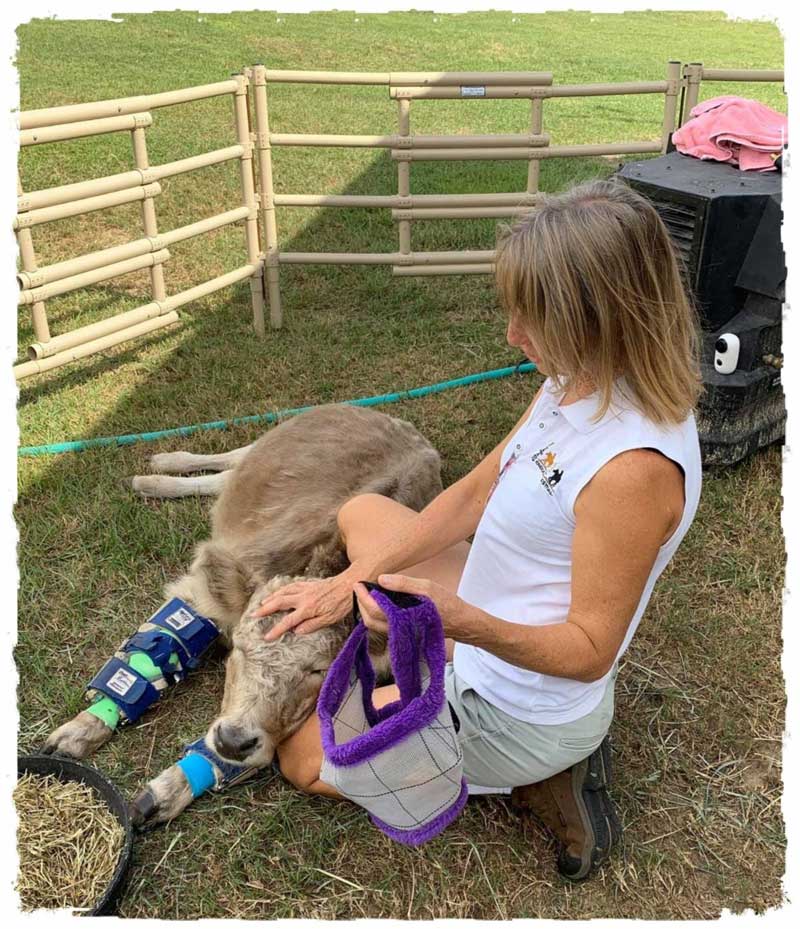
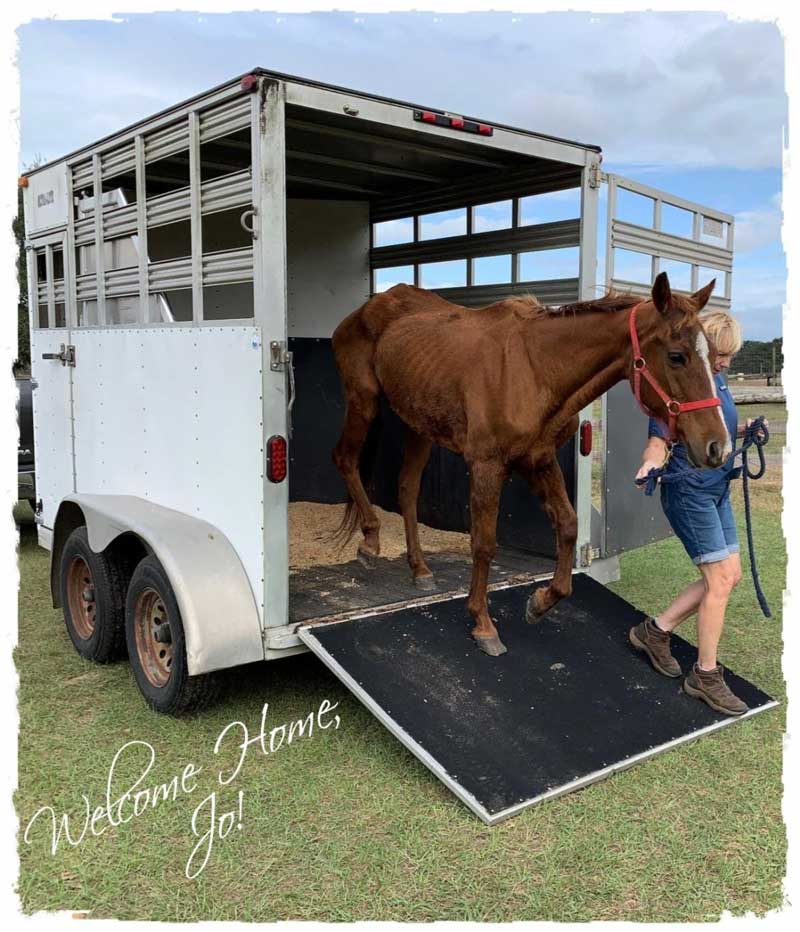
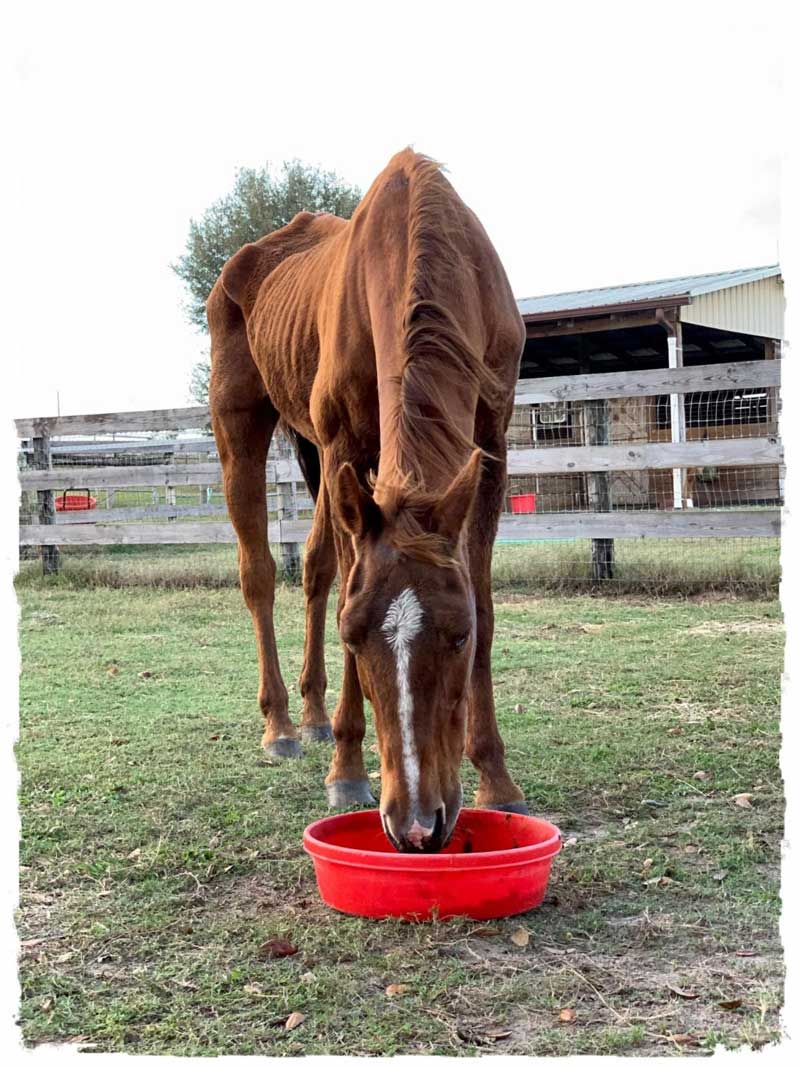
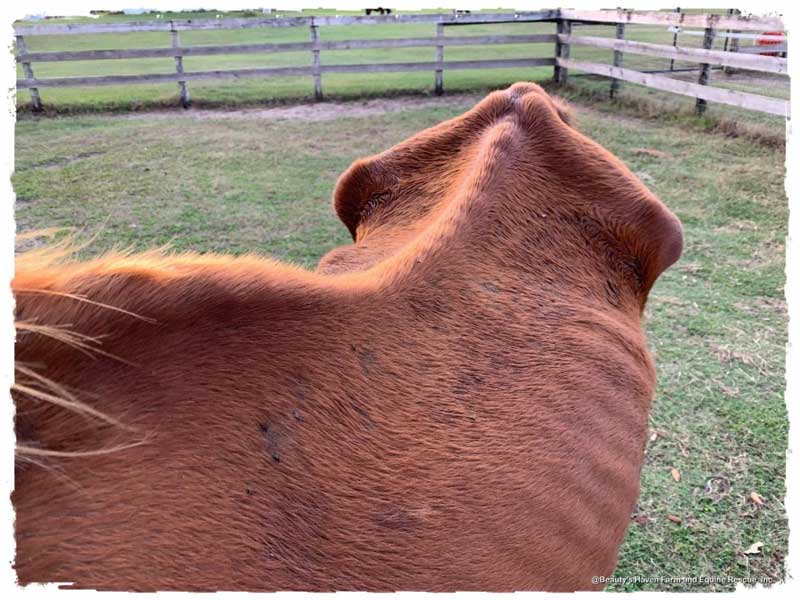
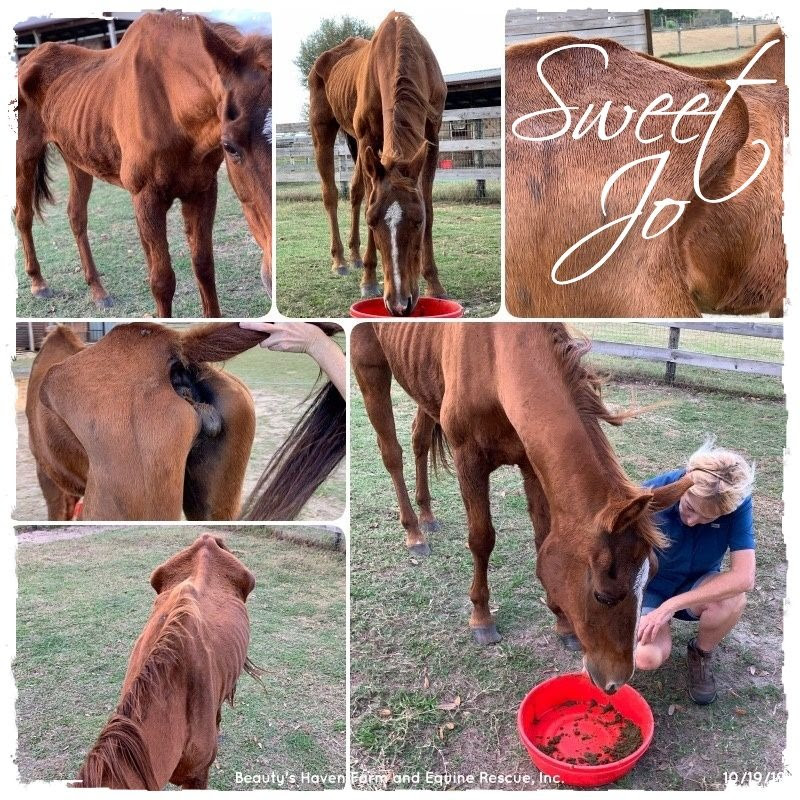
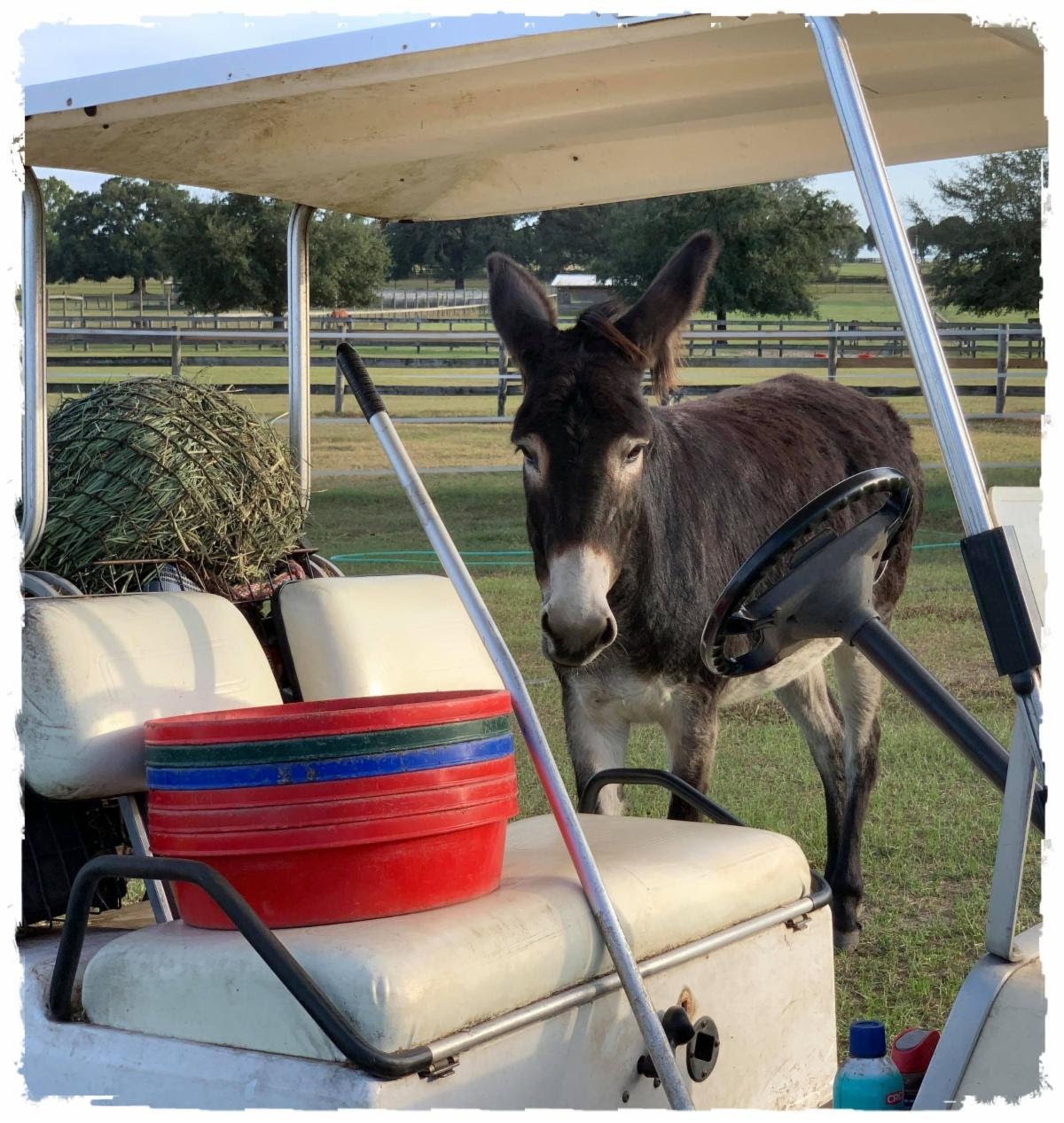
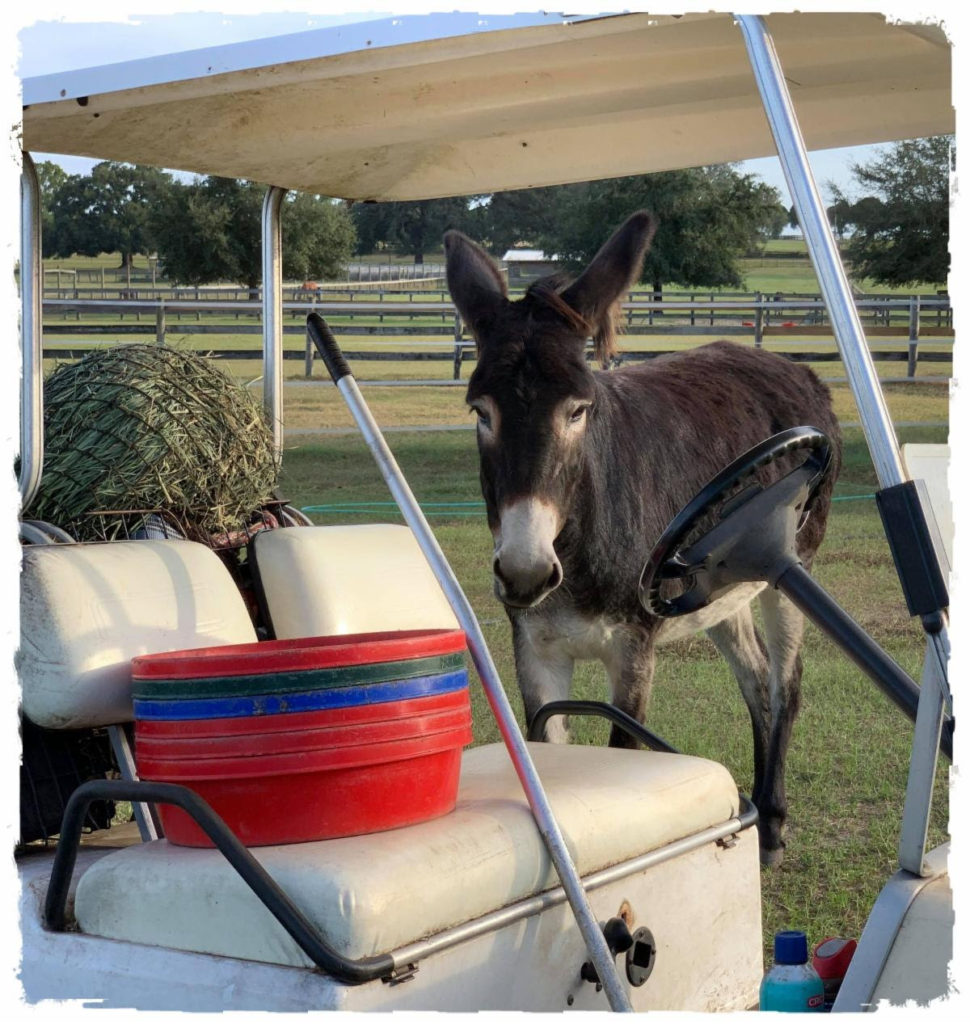
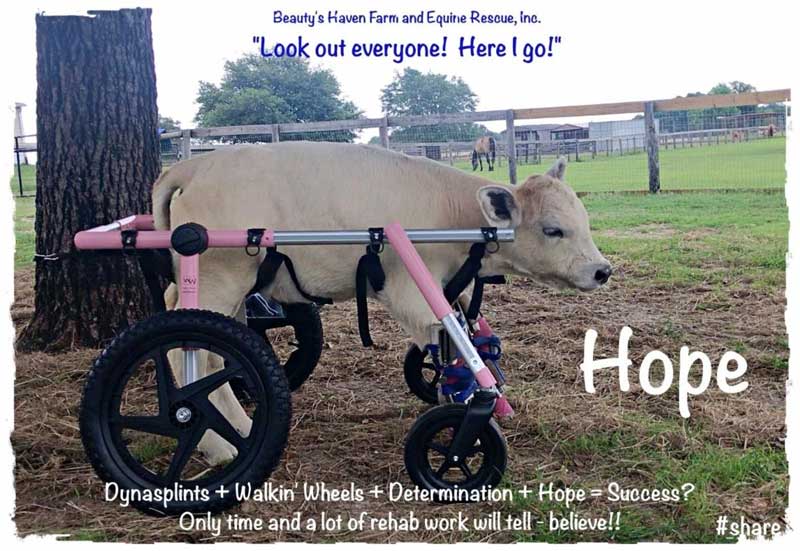
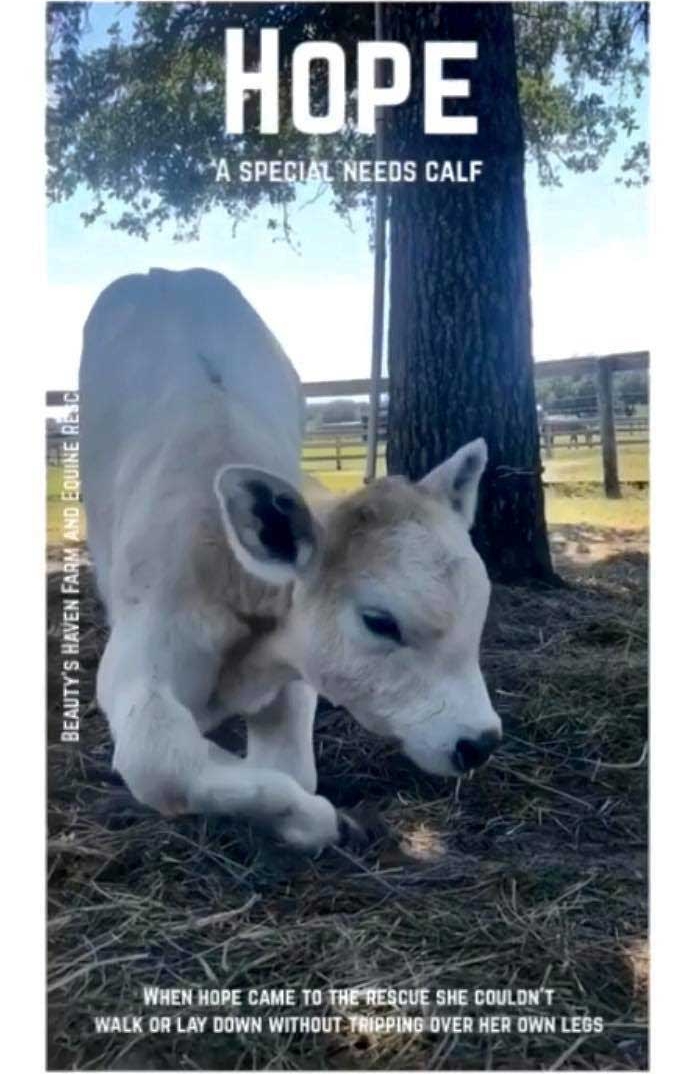 Hi Everybody!
Hi Everybody!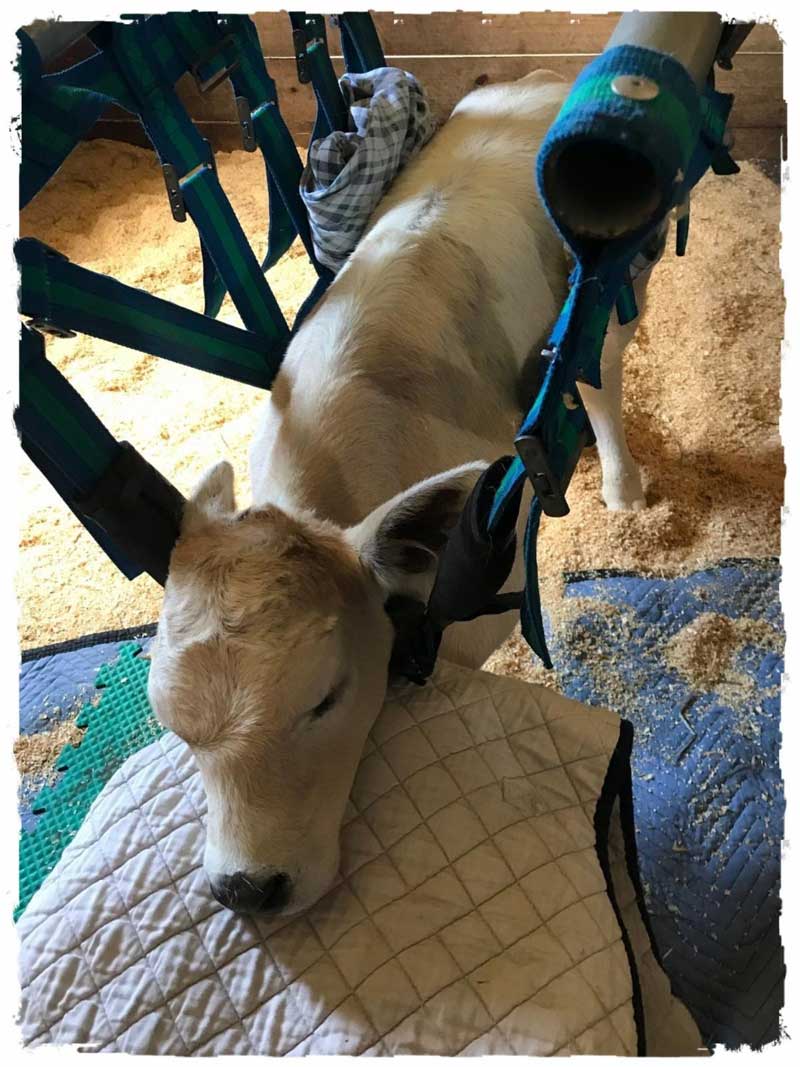 Hope’s Sling
Hope’s Sling